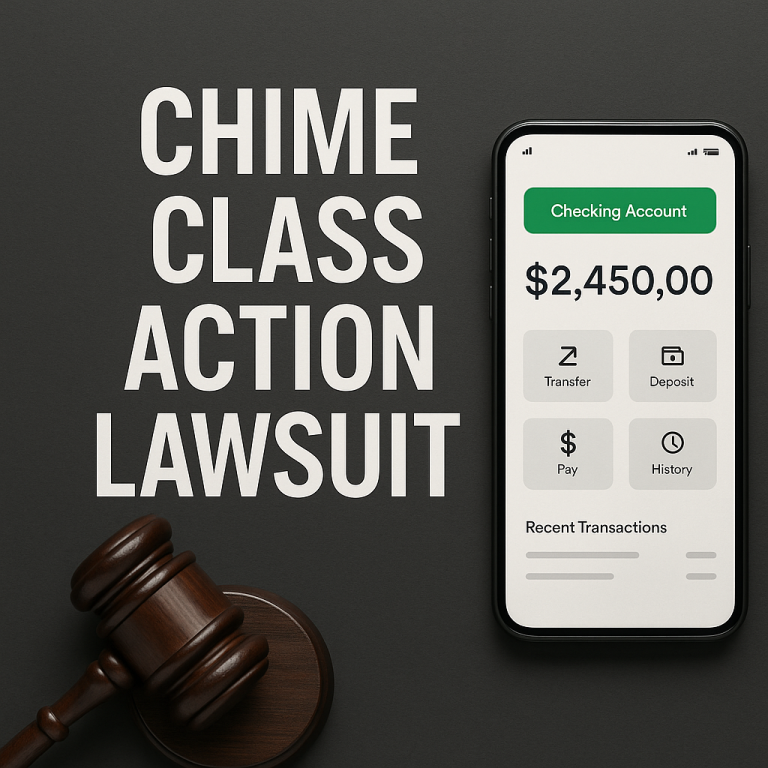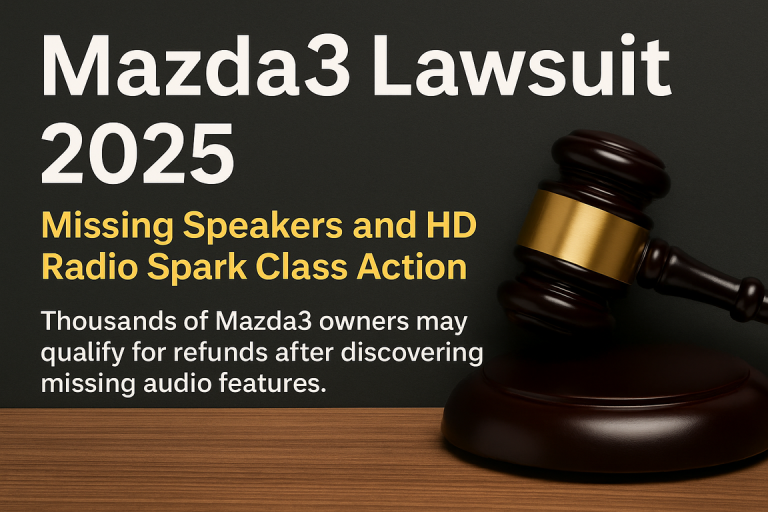The Roundup Lawsuit has uncovered deep concerns regarding chemical safety, business ethics, and consumer protection. Thousands of individuals who believed in Roundup are now experiencing severe health impacts. Their lawsuits have unveiled a sobering tale of concealed risks and broken promises.
While once touted as an agricultural revolution, Roundup is today the focal point of one of the largest legal fights in history. Plaintiffs maintain that prolonged exposure to glyphosate, the key active ingredient in Roundup, resulted in non-Hodgkin’s lymphoma and other forms of cancer. Courtrooms all over America are considering these heartbreaking accounts as juries send strong messages.
This article covers all you want to know about the Roundup lawsuit. It summarizes how the court battle started, what claims were made, and why the result is important to each consumer. This case is important for protecting your health, your family, and your rights.
Roundup’s Rise: How a Simple Weed Killer Became a Global Giant
Roundup first hit the market in the 1970s. Monsanto marketed it as a breakthrough solution for weed control. Farmers embraced it immediately. Landscapers and homeowners followed soon after. Roundup’s appeal was simple. It killed almost any plant it touched, without harming soil for future crops. Glyphosate itself soon became the world’s most widely used herbicide.
As Roundup sales took over the market, Monsanto evolved into a global giant. It marketed Roundup-ready seeds that were glyphosate-resistant, trapping farmers in both the chemical and the seeds. Roundup became synonymous with success in the modern farm. However, a hidden risk would eventually shatter that reputation.
The Warning Signs: How Doubts About Glyphosate Emerged
Early alarm bells about the safety of glyphosate began to ring in the 1980s. A few studies suggested potential cancer connections, but Monsanto fought back vigorously. Government agencies tended to rely on company-funded research to license ongoing use.
It all changed in 2015. The World Health Organization’s International Agency for Research on Cancer (IARC) classified glyphosate as “probably carcinogenic to humans.” Their conclusion shocked the agricultural world.
Still, Monsanto insisted Roundup was safe. Advertising campaigns reassured users. Regulators, such as the U.S. Environmental Protection Agency (EPA), refused to outlaw it. At the same time, thousands of Roundup consumers started linking their cancer diagnoses to years of use.
How the Roundup Lawsuit Gained Momentum
The first lawsuits commenced immediately after the IARC release. Plaintiffs accused Monsanto of knowing Roundup had cancer-causing properties but not disclosing it. Internal company memos leaked by discovery suggested some problematic behavior.
In 2018, the first Roundup case to win was won by Dewayne “Lee” Johnson, a California school groundkeeper. Johnson’s doctors informed him he had months to live. His emotional testimony about years of heavy Roundup use moved jurors deeply.
The jury awarded him $289 million, although appeals later reduced it. Still, the victory opened the floodgates. More than 125,000 lawsuits followed across the United States.
Breaking Down the Key Claims in the Roundup Lawsuit
Understanding the core legal arguments reveals why the Roundup lawsuit gained so much traction.
Failing to Warn Users About Cancer Risks
Plaintiffs argue Monsanto failed to warn consumers about Roundup’s dangers. Labels did not mention any cancer risks. People using Roundup daily did so with false confidence in its safety. Failure to warn forms the backbone of most product liability cases. Courts take this omission seriously, especially when risks are life-threatening.
Manipulating Science and Regulatory Reviews
Many lawsuits allege that Monsanto manipulated scientific research. Internal emails suggest the company ghostwrote favorable studies and paid scientists to sign them. Plaintiffs claim this deception misled both the public and government regulators. When corporations influence science to protect profits, courts often impose heavy penalties.
Selling an Unreasonably Dangerous Product
The lawsuits also argue that glyphosate-based Roundup is defective. They claim safer alternatives existed, but Monsanto stuck to glyphosate due to cost and brand loyalty. In U.S. law, companies must not sell products that are unreasonably dangerous if safer options are available.
Who Are the People Behind the Roundup Lawsuit?
The people behind the Roundup lawsuit are not farmers alone. They are school custodians, city workers, gardeners, and home gardeners. However, They all spent years using Roundup without wearing protective equipment. They breathed in the spray, transferred it on their skin, and thought it was safe.
Decades later, they suffered from non-Hodgkin’s lymphoma, a fast-spreading cancer of the lymphatic system. Others suffer from related illnesses. Their cases are not just about compensation. They are about accountability for a lifetime of trust betrayed.
How Bayer Responded After Acquiring Monsanto
In 2018, Bayer completed its $63 billion acquisition of Monsanto. The timing could not have been worse. Bayer inherited all of Monsanto’s legal troubles. At first, the company defended glyphosate fiercely. It cited regulatory approvals from agencies worldwide. It argued Roundup was safe when used correctly.
However, after three huge courtroom losses, Bayer changed strategies. It pledged more than $10 billion to resolve about 95,000 cases. It said it would eliminate glyphosate from U.S. consumer Roundup products beginning in 2023. Critics say Bayer’s actions were more about reducing financial harm than about consumers.
The Roundup Verdicts That Shaped Public Opinion
Several courtroom victories drew global attention. In 2019, a couple in California who had applied Roundup to their property for many years were awarded $2 billion in compensation. A judge subsequently reduced the award to $87 million, but the message was evident: juries believed Roundup caused their cancer.
Another man, Edwin Hardeman, was awarded $80 million after he had determined that his non-Hodgkin’s lymphoma was brought about by long-term exposure to Roundup. These decisions made it clear that juries would severely punish Monsanto for putting profits ahead of safety.
Key Litigation Milestones
| Year | Event | Why it matters |
|---|---|---|
| 2015 | IARC classifies glyphosate as “probably carcinogenic” | Trigger point for many claims |
| 2018 | First major verdict: $289 million in Johnson v. Monsanto | Landmark case establishing liability |
| 2020 | Bayer agrees to settle about $10-11 billion for thousands of cases Drugwatch.com+1 | Huge payout and shift in strategy |
| 2025 | Georgia jury awards $2.1 billion to Barnes in Roundup case | Illustrates ongoing litigation and impact |
| 2025-2026 | Product reform: glyphosate-free Roundup consumer version announced | Shows how victims’ claims changed product safety |
What Compensation Have Roundup Victims Received?
Compensation amounts vary widely. Some victims with strong documentation and severe health impacts have received settlements of several million dollars.
Typical payouts consider:
Medical expenses
Lost income
Pain and suffering
Future care needs
Victims who refused early settlement offers continue to fight in court, seeking larger awards based on new evidence.
Health Problems Tied to Roundup: What the Science Says
The most widely accepted link is between glyphosate exposure and non-Hodgkin’s lymphoma. However, researchers have also found possible ties to:
Leukemia
Multiple myeloma
B-cell lymphomas
Chronic lymphocytic leukemia
Research indicates that glyphosate induces oxidative stress, a mechanism that harms cells and DNA. Prolonged exposure can initiate cancer development. The longer and more frequent the exposure, the greater the risk.
Is Roundup Still Found in Stores?
Yes, Roundup is still present, although change is occurring. Bayer made a statement that it would transition away from glyphosate in consumer Roundup products for sale in U.S. stores. However, glyphosate formulations will remain on the market for sale to farmers and landscapers. That translates to continued exposure risks, especially for professional users who spray huge areas on a frequent basis.
Are Safer Alternatives to Roundup Gaining Ground?
Luckily yes, safer methods are now being made available easier. Homemade weed killers using vinegar, salt, and essential oils are turning out to be remarkably effective at wiping out weeds with no synthetic chemical. Large-name brands like Green Gobbler and Doctor Kirchner are making the way ahead.
On the farm, farmers are reclaiming techniques like crop rotation, mechanical weeding, and companion planting to reduce their reliance on chemicals. Consumers’ growing demand for organic and chemical-free produce shows that consumers want safer alternatives.
How Product-Safety Standards Changed Because of the Lawsuit
Explain concrete changes: labeling, reformulations, regulatory oversight, company practices.
Include sub-headings like:
Label warnings and consumer disclosure
Reformulated products and removal of glyphosate from consumer version
Impact on other chemical-product lawsuits
What Should You Do If You Were Exposed to Roundup?
If you used Roundup regularly and developed non-Hodgkin’s lymphoma, you may have a legal case.
Here’s what to do:
Gather medical records documenting your diagnosis
Save receipts or proof of Roundup purchases
Record your work history and exposure levels
Contacting a qualified attorney early is critical. Legal deadlines vary by state, and missing them could block your right to compensation.
How the Roundup Lawsuit Is Changing the Agriculture Industry
The impact of the Roundup lawsuit reaches far beyond courtrooms. Farmers are rethinking weed control strategies. Some are cutting back on herbicides. Others are switching to organic or low-chemical farming models.
Insurance companies have raised rates for farms that rely heavily on chemical pesticides. Investors now scrutinize chemical companies’ liabilities more closely before committing funds. The industry has learned that ignoring early warning signs can carry catastrophic costs.
Could the Roundup Lawsuit Change Chemical Regulations?
The Roundup lawsuit is already triggering regulatory reform. Many countries, including Austria, Germany, and parts of Mexico, have begun to ban or restrict glyphosate. In the US, at the state level, efforts are underway to adopt more stringent labeling bills. Shoppers are calling for greater independent science, less corporate control, and more robust government regulation. These forces might redefine the future of pesticide regulation forever.
Why the Roundup Lawsuit Matters to Everyone
This legal battle affects far more than just farmers. It challenges how much trust we place in corporate messaging. It illustrates that science must never be manipulated to safeguard profits. Above all, it reminds us that vigilance, skepticism, and action safeguard public health. The Roundup lawsuit is a call to action to seek transparency in every product that enters our homes and lives.
Conclusion: The Roundup Lawsuit’s Lasting Legacy
The Roundup lawsuit is not just about compensation or corporate blame. It is a powerful lesson about trust, safety, and consumer rights. Thousands of victims stood up against a global giant. Their voices forced the world to confront uncomfortable truths about chemical exposure.
This lawsuit revealed deep flaws in regulatory systems and product safety oversight. It showed how companies must prioritize transparency over profit. It also showed that everyday people have the ability to bring extraordinary change when they are unwilling to remain silent.
The impact of the Roundup lawsuit ripples throughout industries and courts today around the globe. Regulators rethink pesticide regulations. Consumers insist on cleaner, safer products. Courts emphatically establish that concealing risk is unacceptable.
The fight is not over yet. New lawsuits are still being filed. Research into glyphosate’s effects continues. However, one thing is certain. Thanks to the courage of the victims, the standard for product safety will never be the same again. The Roundup lawsuit reminds every consumer to stay alert, ask hard questions, and demand accountability. Your health, your choices, and your future depend on it.
Frequently Asked Questions About the Roundup Lawsuit
What is the Roundup lawsuit about?
The Roundup lawsuit involves claims that glyphosate exposure caused non-Hodgkin’s lymphoma and other cancers. Victims argue Monsanto failed to warn users.
Who can file a Roundup lawsuit?
Anyone diagnosed with non-Hodgkin’s lymphoma after regular Roundup exposure may qualify. Both residential and occupational users are eligible.
Are Roundup settlements taxable?
In most cases, compensatory damages for personal injuries are not taxable. However, always consult a tax professional before accepting payments.
What should I do if I suspect Roundup caused my cancer?
Contact an experienced attorney immediately. Gather medical records, usage proof, and any documents linking your illness to Roundup exposure.
How long do I have to file a Roundup lawsuit?
Deadlines vary by state. Some states allow two years after diagnosis. Acting quickly ensures you protect your legal rights.
What evidence strengthens a Roundup lawsuit claim?
Stronger claims include extensive usage records, a clear cancer diagnosis, consistent medical treatment, and expert testimony linking Roundup to harm.
Why are Roundup lawsuits still being filed today?
New cases continue because exposure timelines vary. Some victims only recently discovered the connection between their cancer and Roundup use.
Could more health risks emerge from glyphosate exposure?
Possibly. Researchers continue studying glyphosate’s effects on human health. New findings could support additional claims or future regulations.
Has Roundup been banned in any countries?
Yes. Countries like Austria, Germany, and Vietnam have announced bans or restrictions on glyphosate to protect public health and ecosystems.
Can I join a class-action lawsuit for Roundup?
Most Roundup lawsuits are handled individually. However, some cases are grouped into mass torts for efficiency while preserving personal claims.
Will Bayer create a global settlement fund?
Bayer proposed settlement funds for current and future claims. However, legal battles over these proposals continue in several U.S. courts.
How can consumers protect themselves from unsafe products?
Research product ingredients independently. Choose safer alternatives when possible. Support stronger regulations requiring full disclosure and independent safety studies.
Why is the Roundup lawsuit important for everyone?
The Roundup lawsuit proves that transparency matters. It shows corporations must prioritize consumer safety over profits and face consequences when they don’t.




